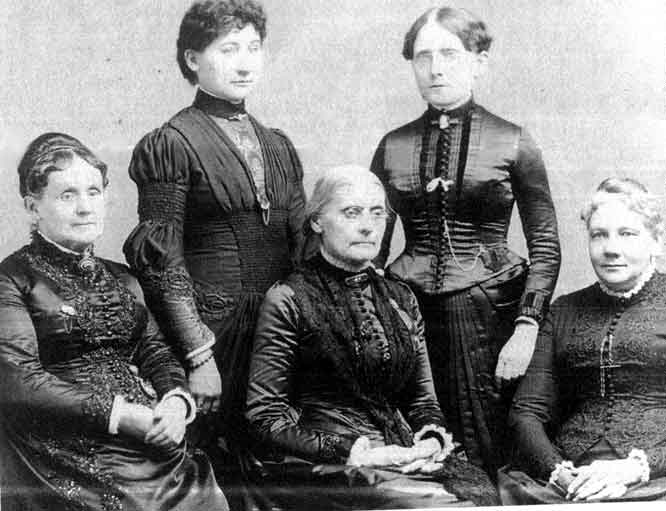Anthony, Susan

Susan Brownell Anthony was born to a Quaker family in Adams, Massachusetts, on February 15, 1820. After attending the Friends‚ Boarding School in Philadelphia (1837-38), she taught at several academies and headed the Female Department of the Canajoharie (N. Y.) Academy (1846-49).
Returning home in 1850, she became acquainted with the leading abolitionists of the time, many of whom met regularly at her fathers home. Nevertheless, she chose at that time to focus her attention on the temperance movement in Rochester.
In 1852, while a delegate to the Sons of Temperance meeting in Albany, she suffered discrimination because of her gender. Angered, she formed the Womans State Temperance Society of New York later that same year.
From 1856 until the Civil War, she served as an agent for the American Anti-Slavery Society. In addition, she organized the Women's National Loyal League to help bring about the emancipation of African-Americans.
She was also active in teachers‚ organizations, demanding equal pay for female teachers. After the war, Anthony attempted to have the Fourteenth Amendment extended so that women would have the right to vote. Between 1868 and 1870, she published a womens rights periodical, The Revolution.
Taking a radical step, she voted illegally in 1872 and was arrested; however, when fined $100 dollars, she steadfastly refused to pay, and the fine was never paid. Continuing her struggle for women‚s rights, she
lectured ceaselessly, despite severe opposition. In 1888, she helped form the International Council of Women in London; and after the National and the American Woman Suffrage associations merged, she became president (1892), holding this post until 1900.
In the early years of the twentieth-century, Miss Anthony organized associations to help promote her cause throughout the world. She died in Rochester, New York, on March 13, 1906.
 >
>